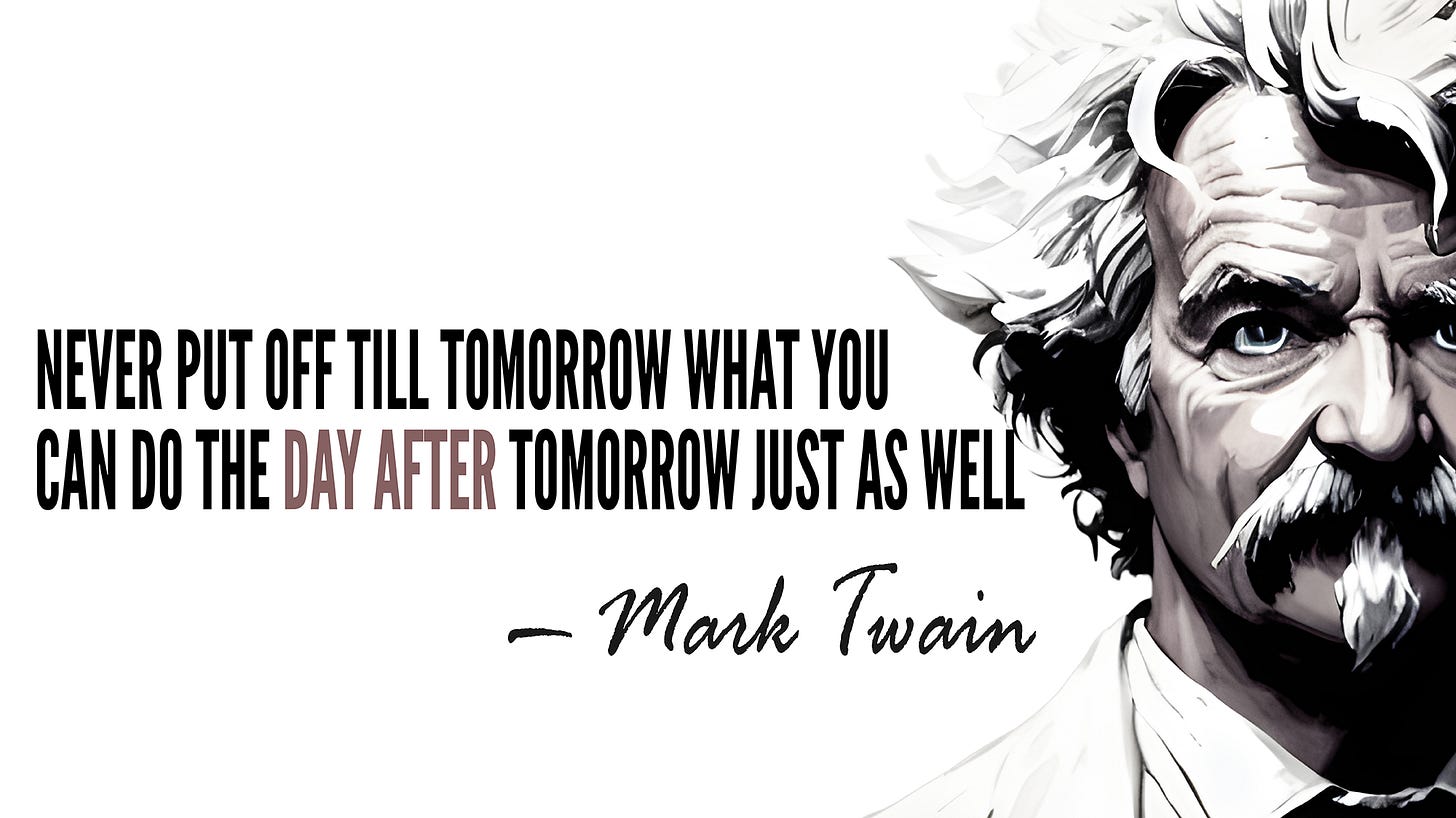Procrastination: The art of being creative… later
Writers (as well as most other artists) tend to spend much of their “working” time engaged in activities that look distinctly unlike work...
As it turns out, procrastination isn’t merely a maladaptive tendency to improperly manage time — it’s also a necessary condition for creative and divergent thinking.
(Certainly, that lede sounds as if I’m trying to justify the bouts of unproductive distractions regularly plaguing my workdays… but hang with me here.)
John Cleese once observed that creative minds tend to endure the anxiety of decision making better than most — and I’ve often reflected on this point when thinking about why so many creative people tend to be habitual procrastinators.
Creative people have learned to tolerate that slight discomfort and anxiety we all experience when we haven’t solved a problem. — John Cleese
At its core, what Cleese was suggesting was that creative solutions generally require a longer period of incubation than the quick decisions most of us are hardwired to pursue. Creative people, in other words, have evolved to be uncannily comfortable with the feeling of incompletion that accompanies long, drawn out problem solving.
When most of us have a task that needs accomplishing, a problem that needs solving, or a solution that needs to be crafted, it nags at the edge of our mind and hallows out a pit in our stomach — incentivizing us to “get it done” and check it of our mental to-do-list as quickly as possible.
Creative thinking, on the other hand, requires that we “mull it around” a bit longer — exploring the plethora of ideas (both good and bad) that might generate some sort of creative solution. (It almost makes one wonder what level of procrastination was needed to create “The Ministry of Silly Walks.”)
As I’ve discussed before, “thinking creatively in our political, professional and personal lives is the art of deviating from what we know to be a ‘good’ idea in search of the value that exists in its opposite” — and doing so obviously requires time to explore, consider, and investigate those ideas that are not obviously, or immediately, seen to be “good.”
Given the anxiety one must endure to postpone the satisfaction of a “quick answer,” it is little wonder creative minds harbor a tendency towards procrastination…
Keep reading with a 7-day free trial
Subscribe to Creative Discourse to keep reading this post and get 7 days of free access to the full post archives.




